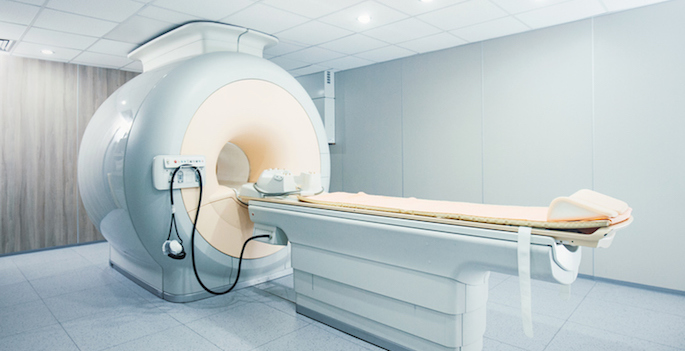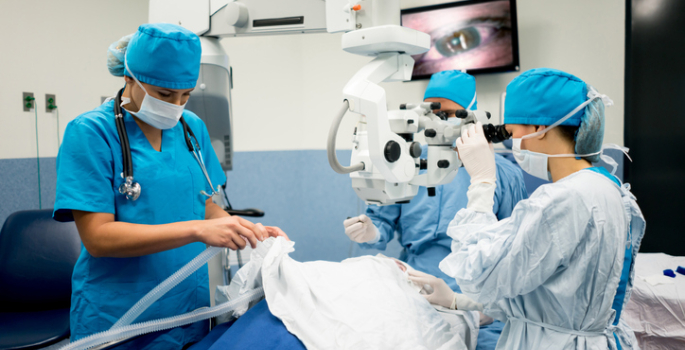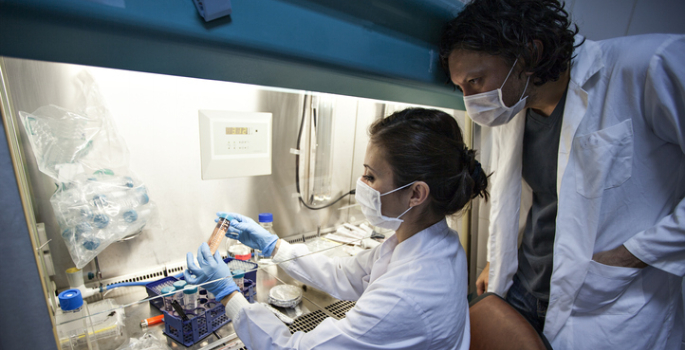Biomedical Engineering
-

Vanderbilt graduate students address legislators to advocate for NSF funding
Two graduate students from Vanderbilt’s School of Engineering and one from the School of Medicine Basic Sciences recently addressed legislators in Washington, D.C., virtually, sharing stories about the important role funding from the National Science Foundation has played in their research and training. Read MoreJun 30, 2021
-

Vanderbilt graduate students address legislators to advocate for NSF funding
By Collier Roberts Members of the Vanderbilt community meet with a staff member from the Office of Rep. Steve Cohen (D-TN09). (Office of Federal Relations) Two graduate students from Vanderbilt’s School of Engineering and one from the School of Medicine recently addressed legislators in Washington, D.C., virtually, sharing stories about the important role funding from... Read MoreJun 30, 2021
-

Gore tapped for prestigious lecture named for MRI co-inventor Lauterbur
The relatively brief history of medical MRI is riddled with failed predictions, according to University Professor John Gore, founding director of the Vanderbilt University Institute of Imaging Science. Bold statements about the optimal magnetic field and the limits of magnet strength were way off. In 1982 one researcher concluded MRI was useful for imaging the... Read MoreJun 1, 2021
-

Gore tapped for prestigious lecture named for MRI co-inventor Lauterbur
The relatively brief history of medical MRI is riddled with failed predictions, according to University Professor John Gore, founding director of the Vanderbilt University Institute of Imaging Science. Bold statements about the optimal magnetic field and the limits of magnet strength were way off. In 1982 one researcher concluded MRI was useful for imaging the... Read MoreJun 1, 2021
-

Collaboration propels advancements in personalized cochlear implant procedures
Vanderbilt University Medical Center is the busiest cochlear implant center in the U.S., performing more than 300 implant surgeries each year. A key driver is close collaboration among engineers, surgeons, audiologists, speech scientists and other experts. This interdisciplinary, trans-institutional work has enabled a truly customized approach for each patient. Research teams have developed image-guided surgery for... Read MoreFeb 26, 2021
-

New $2 million NIH grant advances less invasive procedure for TLE
A Vanderbilt research team has received a $2 million National Institutes of Health grant to further develop a needle-size robotic surgery system with real-time MRI guidance for drug resistant temporal lobe epilepsy (TLE). Such a procedure has the potential to reduce or eliminate seizures using a minimally invasive approach over the current standard of care,... Read MoreFeb 16, 2021
-

Imaging guidance for nerve repair
A noninvasive, quantitative MRI method could be used after surgical repair of traumatic peripheral nerve injury to help clinicians make decisions about whether additional surgical interventions are needed. Read MoreFeb 9, 2021
-

Dozens of engineering professors among world’s top 2% of working scientists
Nearly 40 School of Engineering faculty members have been named among the top 2 percent of 7 million working scientists in the world. More than 60 percent of the school’s full professors are in this elite group, based on a recent study by a Stanford University professor and his colleagues. The study combines several different... Read MoreJan 25, 2021
-

Cancer Institute grant funds new integrated approach to early lung cancer detection
Vanderbilt researchers have received a National Cancer Institute grant to develop a novel, integrative approach to detect early signs of lung cancer. The four-year project builds on a related, recent study that established the value of using three separate measures—structural imaging, a protein marker and information available from electronic health records—to predict lung cancer in... Read MoreJan 22, 2021
-

Mahadevan-Jansen and Vanderbilt Biophotonics Center resume lab activity with renewed purpose during Research Ramp-up
Anita Mahadevan-Jansen (Vanderbilt University) The Vanderbilt Biophotonics Center, directed by Anita Mahadevan-Jansen, Orrin H. Ingram Professor of Biomedical Engineering, conducts research on clinical photonics, neurophotonics and multiscale photonics to develop optical technologies that improve patient care. When Vanderbilt ramped down in-person research activities in mid-March due to the COVID-19 pandemic, Mahadevan-Jansen and her team did... Read MoreDec 4, 2020
-

CZI grant expands training and access to high-end imaging techniques
With a grant from the Chan Zuckerberg Initiative’s Imaging Scientists program, a research assistant professor of biomedical imaging will extend the accessibility of specialized microscopy equipment and expertise within Vanderbilt University to a broader pool of researchers, including students. Bryan Millis, also a research assistant professor of cell and developmental biology, develops microscopy and imaging technologies... Read MoreDec 2, 2020
-

Imaging brain’s white matter is predictive “biomarker” for Alzheimer’s disease progression
Measuring changes in functional connectivity of the brain’s white matter, which is made up of nerve fibers and their protective myelin coating, can predict Alzheimer’s disease progression, researchers in the Vanderbilt University Institute of Imaging Science have found. Previous studies have correlated variations in blood oxygenation level dependent (BOLD) signals detected by functional magnetic resonance... Read MoreNov 20, 2020
-

Imaging “biomarker” for Alzheimer’s disease progression
Changes in connectivity in the brain’s white matter may be a novel neuroimaging biomarker for assessing Alzheimer’s disease progression. Read MoreNov 16, 2020
-

Researchers create technique that corrects distortions in MRI images
Perfecting MRI images with deep learning, Vanderbilt and VUMC researchers have created a technique that corrects image distortions, which provides more accurate information for researchers, radiologists and neuroscientists to better interpret brain scans. The work by Bennett Landman, professor of electrical engineering and computer science and radiology and radiological sciences, and Kurt Schilling, research assistant... Read MoreNov 11, 2020
-

Vanderbilt trans-institutional team shows how next-gen wearable sensor algorithms powered by machine learning could be key to preventing injuries that sideline runners
An interdisciplinary team of researchers led by Karl Zelik explores how wearable sensor technology can monitor bone stress in runners, developing a new multi-sensor algorithm that could save runners from months of pain and recovery time. Read MoreOct 28, 2020
-

Grissom awarded $1.4 million NIH grant to develop smaller, quieter MRI system
Vanderbilt engineers have received a $1.4 million NIH grant to work toward a compact, silent, less expensive and potentially portable MRI device. Read MoreSep 1, 2020
-

Does named Fellow of International Society for Magnetic Resonance in Medicine
Mark Does, professor of biomedical engineering has been selected as a Fellow of the International Society for Magnetic Resonance in Medicine. His research program focuses on developing and applying MRI methods to quantitatively characterize various properties and/or compositions of tissue. It includes developing models of nuclear magnetic resonance relaxation and water diffusion in tissue, development... Read MoreAug 11, 2020
-

Duvall named Fellow of the Biomedical Engineering Society
Craig Duvall, Cornelius Vanderbilt Professor of Engineering, has been elevated to the rank of Fellow of the Biomedical Engineering Society. Duvall and his research program focus on development of technologies for controlled drug release, tissue regeneration and therapeutics, and delivery of intracellular-acting biologic drugs such as siRNA and peptide therapeutics. The applications of these technologies... Read MoreAug 10, 2020
-

Vanderbilt researchers receive $1.4 million grant to improve outcomes after macular hole repair
Researchers from Vanderbilt University and Vanderbilt University Medical Center have received a $1.4 million grant from the National Eye Institute at the National Institute of Health to identify surgical techniques that improve vision after macular hole repair. Read MoreAug 6, 2020
-

BME junior selected for inaugural NIH program to pursue biomedical graduate degree
Lucy Britto is one of six Vanderbilt undergraduates selected as a MARC scholar in the inaugural 2020 cohort of an innovative National Institutes of Health program. Read MoreJul 15, 2020